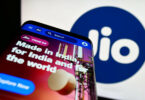In April, when Facebook invested $5.7 billion in India’s Reliance Jio, it was thought that Reliance Industries’ Mukesh Ambani might help with getting WhatsApp Pay launched in India. But the impact so far has been limited. Yesterday the National Payments Corporation of India (NPCI), which oversees the Unified Payment Interface (UPI), said WhatsApp Pay could go live with up to 20 million users.
However, it had already given the go-ahead for ten million users in February this year after it blocked the WhatsApp Pay launch in 2018.
Given that India’s WhatsApp userbase is around 400 million, the 20 million figure represents just five percent. India is the largest market for both Facebook and its subsidiary WhatsApp, but it doesn’t make much money there. The average user in North America earns almost 12 times more for Facebook than a user in Asia-Pacific, including India.
And the sector is a massive opportunity. As we previously explored, BIS statistics show that India had the highest growth rate in the world for cashless payments at 54.5% for 2018.
Currently, the biggest Indian mobile payment and wallet providers are Paytm, Google, Walmart-owned PhonePe, and BHIM from the national payments firm.
Paytm is backed by Softbank, Ant Financial and Berkshire Hathaway and has more than 150 million annual active users. In September, it was temporarily removed from the Google Play store, a major issue as Android powers more than 95% of Indian smartphones.
PhonePe appears to be the fastest growing. It said it had 100 million monthly active users in October and claimed to be responsible for 40% of all UPI transactions.
Either way, these competitors are growing at a significant clip and have live offerings for investments and insurance, while WhatsApp Pay is still waiting on the benches. A few months ago, WhatsApp payments were also blocked in Brazil.






